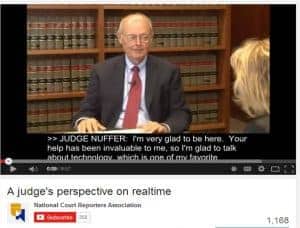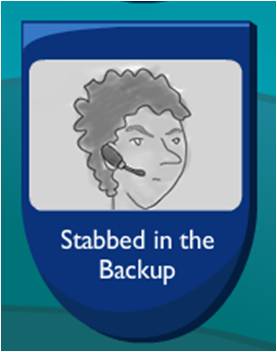
With realtime, Judge Nuffer feels that he is able to “focus his attention,” and “track what had really been asked and answered, and carefully evaluate objections on evidence” as they are made. In addition, Judge Nuffer feels that attorneys benefit, as they are “better able to know if an argument’s been hit, or if it’s been missed,” and they “are able to carefully analyze what’s being said by the other side so they can be prepared to rebut or respond.” He went on to elaborate that value for attorneys “is very high” in that “they are able to have a concrete idea of what’s happening as it happens.”
In addition to the benefits realtime provides the judges and counsel, Judge Nuffer describes how it also benefits the courtroom deputy, as (s)he can search the realtime feed to see if an exhibit “was just introduced,” or whether it was “actually admitted and received.” Judge Nuffer’s law clerk is also able to take advantage of the realtime by “marking significant pieces of testimony . . . as it goes by,” something that the judge can’t do often, because he is too busy.
Finally, Judge Nuffer described how it benefits the public, especially the hard of hearing and deaf community, in that they are actually able to “see the words.” In fact, during one of Judge Nuffer’s trials, a deaf individual began tracking the realtime feed, rather than the sign language interpreter for that very reason.
After 17 months of working with NCRA Director Sue Terry and NCRA’s Tech Ed Committee, as well as the courthouse IT team, realtime is now available in the new Salt Lake City U.S. District Courthouse via the courthouse’s public WiFi system using standard viewing software.
Judge Nuffer concluded the interview with Ms. Dibble by indicating that with realtime, “everyone is able to achieve greater accuracy and greater concentration. And honestly, it is a very big differentiator for reporters. A reporter who can offer a realtime service is really adding value. And I think that, as court administrators and others look at these systems, they’ll realize this is the way to better serve, this is the way to improve efficiency and accuracy, and improve justice in the long-run.”

 ce software enables court reporters the ability to
ce software enables court reporters the ability to 